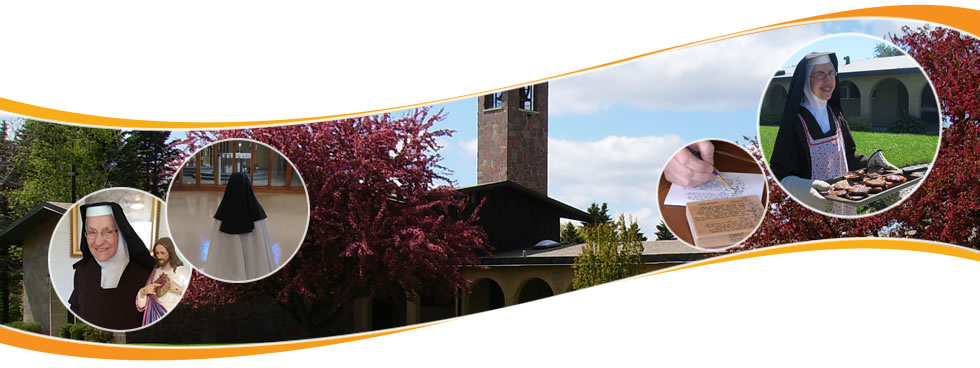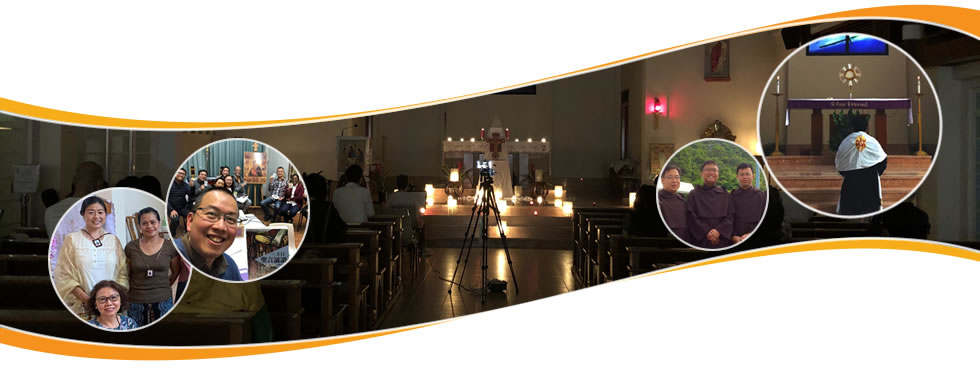Ordinary Time
1) Opening prayer
Father,
you show your almighty power
in your mercy and forgiveness.
Continue to fill us with your gifts of love.
Help us to hurry towards the eternal life your promise
and come to share in the joys of your kingdom.
We ask this through our Lord Jesus Christ, your Son,
who lives and reigns with you and the Holy Spirit,
one God, for ever and ever. Amen.
2) Gospel Reading - Luke 10:1-12
In those days the Lord appointed seventy-two others and sent them out ahead of Him in pairs to all the towns and places He himself would be visiting.
H He said to them, 'The harvest is rich but the laborers are few, so ask the Lord of the harvest to send laborers to do his harvesting. Start off now, but look, I am sending you out like lambs among wolves. Take no purse with you, no haversack, no sandals. Salute no one on the road.
Whatever house you enter, let your first words be, "Peace to this house!" And if a man of peace lives there, your peace will go and rest on him; if not, it will come back to you. Stay in the same house, taking what food and drink they have to offer, for the laborer deserves his wages; do not move from house to house.
Whenever you go into a town where they make you welcome, eat what is put before you. Cure those in it who are sick, and say, "The kingdom of God is very near to you."
But whenever you enter a town and they do not make you welcome, go out into its streets and say, "We wipe off the very dust of your town that clings to our feet, and leave it with you. Yet be sure of this: the kingdom of God is very near." I tell you, on the great Day it will be more bearable for Sodom than for that town.’
3) Reflection
• Context: Chapter 10, which begins with this passage, presents a characteristic of revelation. In 9, 51 it is said that Jesus “resolutely turned his face toward Jerusalem”. This journey, an expression of his being Son, is characterized by a two-fold action: He is closely united “to the fact of being taken away” (v. 51), and his “coming” through the sending out of his disciples (v. 52). There is a bond of union in the double movement: “to be taken away from the world” to go toward the Father, and to be sent to men. In fact, it happens that sometimes the one sent is not accepted (9, 52 and, therefore, He has to learn how to be “delivered”, without allowing himself, because of this, to be modified by the rejection of men (9, 54-55). Three brief scenes make the reader understand the meaning of following Jesus who is going to Jerusalem to be taken out of the world. In the first one, a man is presented who desires to follow Jesus wherever He goes. Jesus invites him to abandon all that he has - all that gives him well-being and security. Those who want to follow Him have to share his destiny of a nomad life. In the second scene it is Jesus who takes the initiative and He calls a man whose father has just died. The man asks to delay in responding to the call in order to comply with the law and to his duty to bury the parents. The urgency of announcing the Kingdom exceeds this duty. The concern of burying the dead is useless because Jesus goes beyond the doors[1] of death and He fulfils this even for those who follow him. In the third scene, a man is presented who offers himself spontaneously to follow Jesus but He places a condition: to bid farewell to his parents. To enter into the Kingdom one does not delay. After this three-fold renunciation, the expression of Luke 9, 60, “Once the hand is laid on the plough, no one who looks back is fit for the Kingdom of God”, introduces the theme of chapter 10.
• The dynamic of the account. The passage which is the object of our meditation begins with somewhat dense expressions. The first one, “After these things, it sends us back to the prayer of Jesus and to his firm decision to go to Jerusalem. The second one concerns the verb “appointed”: He appointed seventy-two others and sent them out...” (10, 1). Where it is said concretely that He sent them ahead of him, it is the same resolute Jesus who is journeying to Jerusalem. The recommendations that He addresses to them before sending them are an invitation to be aware of the reality to which they are sent: abundant harvest in contrast to the few laborers. The Lord of the harvest arrives with all his force but the joy of that arrival is hindered by the reduced number of laborers. Therefore, the categorical invitation to prayer: “Ask the Lord of the harvest to send laborers to do his harvesting” (v. 2). The initiative of sending out on mission is the competence of the Father but Jesus transmits the order: ”Start off now” and then He indicates the ways of following (vv. 4-11). He begins with the luggage: no purse, no sack nor sandals. These are elements that show the fragility of the one who is sent and his dependence on the help that they receive from the Lord and from the people of the city. The positive prescriptions are synthesized first in arriving to a house (vv. 5-7) and then in the success in the city (VV. 8-11). In both cases, the refusal is not excluded. The house is the first place where the missionaries have the first exchanges, the first relationships, valuing the human gestures of eating and drinking and of resting as simple and ordinary mediations to communicate the Gospel. “Peace” is the gift that precedes their mission, that is to say, fullness of life and of relationships; the true and real joy of the arrival of the Kingdom. It is not necessary to seek comfort and it is indispensable to be welcomed. Instead, the city becomes, the most extensive field of the mission. It is there that life, political activity, the possibility of conversion, acceptance, and rejection are developed. This last aspect is linked to the gesture of shaking off the dust (vv. 10-11). It is as if the disciples, in abandoning the city that has rejected them, would say to the people that they possess nothing as an expression of the end of the relationship. Finally, Jesus recalls the guilt of that city which will close itself to the proclamation of the Gospel (v. 12).
4) Personal questions
• You are invited every day by the Lord to announce the Gospel to those close to you (in the house) and to all persons (in the city). Do you assume a poor, essential style in witnessing your identity as a Christian?
• Are you aware that the success of your witness does not depend on your individual capacity but only on the Lord who orders and on your availability?
5) Concluding Prayer
Your face, Yahweh, I seek;
Do not turn away from me.
Do not thrust aside your servant in anger,
without you I am helpless.
Never leave me, never forsake me, God, my Savior. (Ps 27,8-9)
































